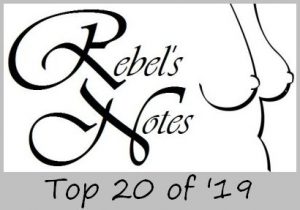Safe Words – Expressions of Accountability and Responsibility
Safewords are often the one thing that people know about BDSM play and D/s connections. They are the poster child for the kink community to show that kinky sex is safe, sane and consensual. You don’t like what is going on? Use the safeword! But I think it is more complicated than that. On paper, we are all supposed to use the safeword, and our partners are supposed to respect them and stop all play once a safeword is uttered, In reality, things are not as straight forward.
New Play Partners
The one scenario where I think a safeword is very important, is when you play with someone new. That might be on a playparty or a dungeon party. It can also be someone you just entered a romantic relationship with. If you are engaging in any kind of play that is about a power exchange, a safeword is important. You don’t know the way the other person plays yet. You don’t know how much pain they give or how much pain they can take. While you might be aware of each other’s hard limits, you don’t really know where the framework is yet. And you build that framework with the negotiations beforehand, and by using the safeword during play.
Why People Avoid Using Safewords
I know that someone using the safeword can be a moodkiller. It stops play! So if you are in Domspace or subspace, are aroused and want things to get more intense, it can be really tough on you if a safeword is uttered. I think that is why a lot of people don’t use the safeword in the first place: they don’t want to kill the mood. But in the end it is about playing safe with each other, and to build up a sort of trust. By not using the safeword, you are actually making yourself seem like an unsafe person to play with, especially if you bring up later that you didn’t like what was happening. Using a safeword shows responsibility and safety.
Another reason why people in newer connections don’t use the safeword is probably because they don’t want to come across as weak. But here is the thing: by using the safeword you actually come across as stronger and more confident, than you do when you endure things that are too much for you.
I need to add this too: if you use the safeword and the person you are playing with does not accept it, or continues with play and ignores you, then they are an abuser. They are unsafe, they are playing with you although you withdrew consent. Because that is what a safeword does: it withdraws consent. Someone playing with you without consent is abusing you. Please never play with them again, please warn others in the community about them and make sure that you have the proper kind of support around you.
Now. safewords in either long term D/s or play partner connections, are different in my eyes. The difference is that there is familiarity. You can read each other’s reactions way better, you know what a certain movement, a certain look, a certain scream, can mean. What I find most amazing is that the words “No” and “Stop” lose their meaning. If you are playing with someone who knows you well, you can scream “No, please stop!”, however much you want when you are bottoming. Because all your top might reply with is: “That’s not the safeword!”. (I totally love those moments because they are both humiliating for me as the bottom, and they make me realize how dominant and sadistic my top really is).
Safewords in Long Term Connections
Play in long term D/s connections is very much a well oiled machinery. You know each other’s soft limits and hard limits. You know each other’s kinks, you what turns the other person on. And there is communication. If there are new things you want to try out with each other, you talk about it. You reflect around what you enjoyed, what you want to change. The level of trust is different. The framework is already built up. That doesn’t mean it has to get boring. There can be still new kinks explored, soft limits pushed.
Familiarity
What I have found very interesting in my own D/s connection is that my Master adapts to my reactions. I am not saying that he stops what he is doing, but he adjusts the level of pain, the intensity of penetration, changes position, increases the humiliation. All depending on how he reads my reactions. And he reads them extremely well at this point. What I also appreciate is that he checks in with me: he asks if I am okay.
I don’t need the safeword the same way I needed it in the beginning of our connection. There is a different level of trust between us now, I know he is safe to play with. I know he would never intentionally take risks. He is very observant and logical, even when aroused. Does this mean I don’t need a safeword at all? No! I am even more okay with using the safeword now. I know he would stop all play right away, I know that he wouldn’t be disappointed. The few times I have used the safeword during play, he actually thanked me for it later. Why? Because I made play safer for us both, not only physically, but also mentally. I could show him that I know my limits and that I am not afraid to remind him of them.
Using the Safeword = Lack of Trust?
So does using a safeword in a long term BDSM or D/s connection mean that you don’t trust your partner? I don’t think so. There are still situations where I can imagine using the safeword, and those situations are entirely about how I feel. There is a possibility for a trigger for me, always. So I would use the safeword if I were triggered and felt a flashback coming on. I also think that physical and mental vulnerabilities are different from day to day. So the pain I could take on Monday, is not the pain I can take on Friday. And while I enjoy when he pushes my soft limits, sometimes I am just not ready for it. But how would I know that beforehand? I first know during play. And if he doesn’t read my well in the moment, I can use the safeword.
I can’t expect or demand that he can read every nuance of my reactions. I have a responsibility, I am just as accountable as he is for the play we engage in. So why would I want the pressure to be entirely on him? Him knowing that I would use the safeword if needed, makes it easier for him to let go, instead of constantly having to observe every wrinkle on my forehead.
I am saying this though: if you are in a long term D/s connection and you have to constantly use the safeword and stop play, then I am wondering if you are really playing with a safe person. Someone you have been playing with for a long time should know you, should be able to read you at least a little, and respect your limits. If they are not able to do that then your sexual or play connection is maybe not the safest.
I don’t think that safewords are moodkillers. I think they are tools of accountability and responsibility, and they help us to make sure that play is safe and enjoyable for everyone involved. A submissive that never even considers using a safeword is, in my opinion, just as unsafe as a Dominant who doesn’t respect the use of the safeword. They are the stop signs, the limits. Everyone should be aware of where the red flags are placed. They mark the outer limits of your framework for play.












I really like the way you put the use of safewords together with having a framework where both top and bottom can read the situation. Playing with a new partner, even if it’s in a new relationship, is difficult. Limits may have been set, but what they really mean is not yet clear. There is definitely an evolution as relationships mature. Communication becomes much more intuitive, but you’re totally right that no dominant can be expected to read how a sub’s mood, physical comfort and mental state is from one day to the next. 😘
Yes, that is exactly what I meant, that there is a progress, an evolution, the more mature, intimate and long-term a connection gets. Because things become clearer, safer and it is easier to read each other. A safeword becomes less important, but it still needs to be an option in case someone gets triggered, has a shit day or something goes wrong.
I couldn’t have said this better … perfect reasoning 😊😊
Thank you! <3
Very eloquent post and I’m in agreement with you regarding PRICK and that responses and limits are fluid, therefore safe word usage that is fluid matters too, even when in an established relationship.
Fluid safe word usage, well, now that is a great way to say it! That is kind of exactly what I wanted to say. You are so awesome, Kis!
*shucks*
Great balanced post DS – I am beginning to understand that for me a time when I may need one is when i am triggered as that can happen and have nothing to do with pain or activities x
And it also isn’t anyone’s fault either. Sex and play can’t always be perfect, and that is okay, ya know? I hope you picked a fun safe word!
I agree with the points you raise here, especially the fact that what is bearable one day can be too much on another, and that a safeword is important in case someone gets triggered. It’s not something I’d ever factored in before (although I do keep the traffic light system on standby)
Ah, the traffic light system is easy to remember and can be used with anyone really, smart!